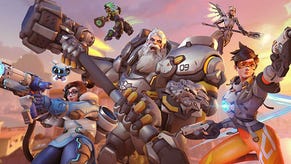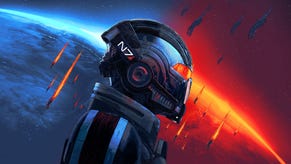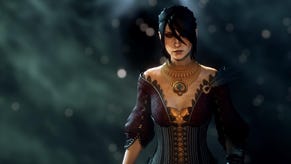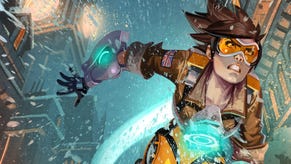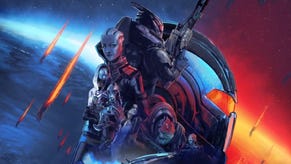Mass Effect
Pause for effect.
All this is supported by the graphics engine, which manages to absolutely steal the facial-acting-in-an-RPG crown from Vampire: Bloodlines. In the masses of conversation, characters just act convincingly. I found myself repeatedly enchanted by my lead character's every expression - how alternately charismatic, wise and sly she seemed. I could easily imagine her on a film poster... and when I remembered I created her from scratch at the start the actual achievement of the BioWare art people becomes all the more impressive.
There are some problems with the graphics - frame-rate is hardly stable, for example. But the bigger problem seems that by concentrating so much on memorable individuals, you lose the ability to convey a crowd. Even the biggest space stations are virtually empty of human (or alien) life. While this was just about acceptable in KOTOR, as a next generation game, especially post Assassin's Creed, it starts hurting its atmosphere - and when that's a primary thing the game runs on, that's a problem.
It's also problematic when BioWare chooses not to question those aforementioned tropes of the RPG. It tries to justify why a guy in your spaceship basement sells you weapons, but it's just a little grating, and you wonder why it didn't try a different approach. In some areas Mass Effect captures being a starship captain brilliantly - the writing in characters, for example, with obvious respect, or at least subservience. However, to chat to your various staff members you have to trudge around the ship like it's KOTOR. You're the captain! If I want to talk to someone, they can come to me and like it.
And if that strikes you as nit-picking, I suspect RPG-heads are going to throwing swords of griping +4 when I note that the sub-quest system seems particularly ill-fitting here. It's always been an issue in an RPG when you throw a serious threat into the plot, and then the player is free to wander off before casually get around to saving the world. Even if there's no time limit, if you don't feel the need to go and try and stop the baddy immediately, your game has fundamentally failed to immerse. To that end, Mass Effect succeeds, as I went through the main plot in less than twenty hours, with only a minimum of side-tracking, but there's a lot of content I didn't look at. If you're offering a galaxy to explore, you should try and create a plot which at least leaves room to explore. Mass Effect serves two masters, and it never quite works.
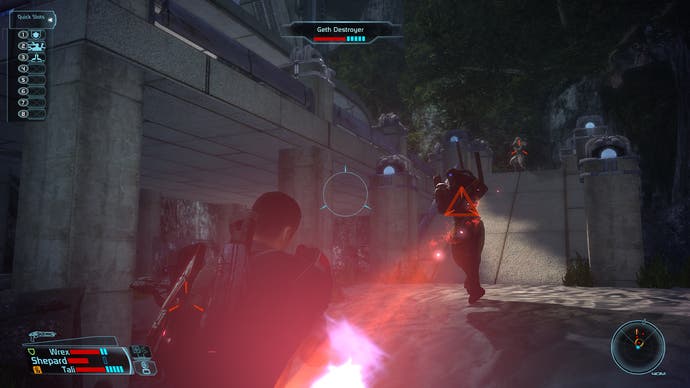
That's a problem that faces most RPGs, but it's particularly notable in Mass Effect for two reasons. Firstly, because the FPS element shines a spotlight on them, because those conventions tend to be so driven. Secondly, because in so many areas Mass Effect absolutely succeeds, and discovering BioWare hasn't questioned its core assumptions is a little disappointing.
But you also suspect BioWare's on the right track, and until it pulls it off - and the initial noises about the sequel seem promising - Mass Effect offers us a singular universe of excitement and drama to lose ourselves in. It's an incredibly ballsy game, not afraid to take on any of its competitors, in any field. Story-lead games? Shooters? Even genuine, non-game populist sci-fi? Mass Effect has a try at them all, and leaves more wounds in them than they leave in it, before blasting off into a space all of its own.



